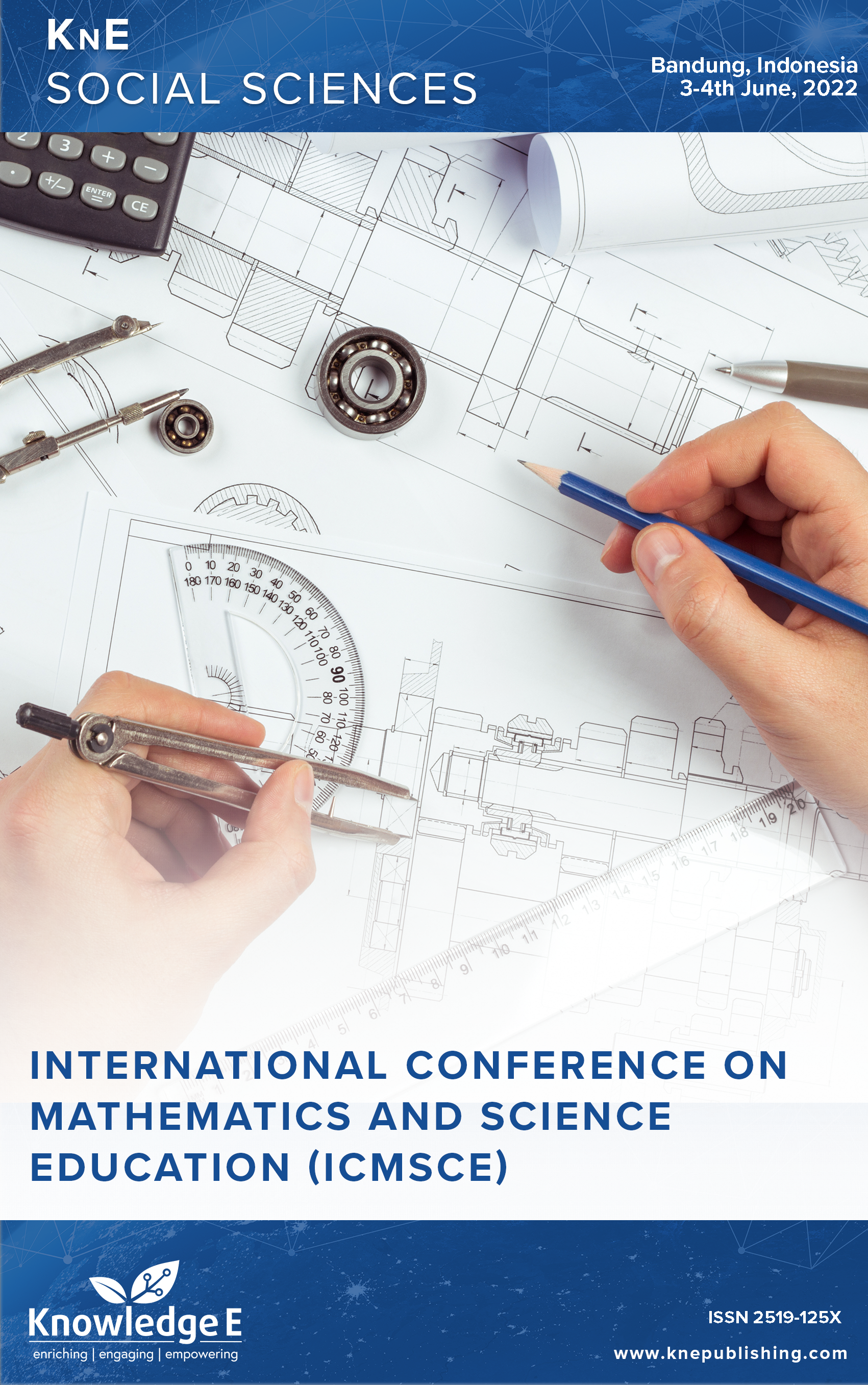Learning Using Edmodo Based On The Science, Technology, Engineering, Art and Mathematics (STEAM) Method
DOI:
https://doi.org/10.18502/kss.v9i13.15896Abstract
This research was motivated by technological developments in the world of education, particularly the increasingly rapid e-learning as one of the media supporting learning. The STEAM approach to learning can improve critical thinking, creative and collaboration skills with good communication. This is very necessary to face the challenges of the Industrial Revolution 4.0. Therefore, this study aimed to assess student response to the learning of the immune system using Edmodo based on the STEAM approach. The study used the Pre Experiment Method with a one-group pretest post-test research design. Data was collected through observations and tests. The instruments used were observation sheets, creative thinking ability tests, validation sheets and questionnaires. This study discovered an increase in students’ creative thinking skills with pretest results of 80.00 and posttest of 97.14. The results of hypothesis testing showed that Asymp Sig. < Sig. 0.05 was 0.002 < 0.05, as such, H0 was rejected, and H1 was accepted, showing a significant increase between the pretest and post-test. In addition, the average value of n-gain was 0.71 in the high category. Student responses to the media and learning approaches were positive, with a percentage of 86.97% in the very good category.
Keywords: learning, edmodo, STEAM
References
Sarwinda W. Empowerment of students’ creative thinking skills through reciprocal teaching strategies in high school biology learning. National Seminar on Biology Education FKIP UNS. 2012;1(1):1–5.
Zubaidah S. STEAM (Science, Technology, Engineering, Arts, and Mathematics): Learning to empower 21???? century skills. National Journal of Mathematics and Science. 2019;xx:1–18.
Huda M, Rosyida, Wardono. Independent learning assisted by mobile learning. PRISMA. 2019;2(1):798–806.
Aripin I. Mobile learning concepts and applications in biology learning. J Biol Educ. 2018;3(April):1–9.
Firdaus ARM, Samah MAA, Hamid KBA, Chowdhury AJK. The discovery of physical properties of food waste in composting process. International Journal of Engineering & Technology. 2018;7(2.29):460. https://doi.org/10.14419/ijet.v7i2.29.13799. DOI: https://doi.org/10.14419/ijet.v7i2.29.13799
Fitriasari P. Edmodo application as e-learning learning media. Mathematics Education FKIP UPGRI Palembang. 2017;1(1):1–8.
Ekayati R. Optimizing the edmodo application in increasing learning independence and language awareness of students in the literary criticism course at FKIP UMSU. EduTech Journal. 2017;3(1):148–65.
Yulistiana. The relationship between achievement motivation and perception of problem solving learning methods on student biology learning outcomes. Indraprasta University, PGRI. 2014;2(4):157–162.
Ardiansyah. Application of Edmodo and Google Classroom Learning Media at Perti Jakarta Islamic Vocational School. J-PiMat. 2020;2.
Yoon M, Baek J. Development and application of the STEAM education program based on the soccer robot for elementary students. Int J Mobile Blended Learn. 2018;10(3):11–22. DOI: https://doi.org/10.4018/IJMBL.2018070102
Suwandi AM. Development of STEAM-based hybrid based learning using a learning management system based on student worksheets to improve students’ abilities in facing the demands of the industrial revolution 4.0. IT-EDU Journal. 2021;6(2):23–31.
Wandari GA, Wijaya AF, Agustin RR. The effect of STEAM-based learning on students’ concept mastery and creativity in learning light and optics. Journal of Science Learning. 2018;2(1):26. DOI: https://doi.org/10.17509/jsl.v2i1.12878
Hadi S. Research methodology. Yogyakarta: Andi Offset; 2012.
Sugiyono, Research methodology quantitative, qualitative and R & D. Alfabeta, Bandung, 2019.
Albano R, Curzi Y, Fabbri T. Qualitative and quantitative research. System, Actor, and Process: Keywords in Organization Studies. Jakarta: Routledge; 2020. pp. 80–3. DOI: https://doi.org/10.4324/9781003057260-26
Septanto H. E-learning using Edmodo A Web-based learning application for class shift at STMIK Bina Insani. Journal of ICT Bina Insani. 2015;2(2):127–41.
Widianto IR. Implementation of Science, Technology, Engineering, Art And Mathematich (STEAM)-based learning to improve elementary school teacher’s pedagogic and professional competencies through lesson study methods. Journal of Science, Technology, Engineering-Based Learning. 2020;8(2):119–23.
Karimah, “The effectiveness of Edmodo-based learning media on student creativity.,”. Edutama Journal of Education. 2018;5(2):97–101. DOI: https://doi.org/10.30734/jpe.v5i2.132
Karimah, Apriliana MR. Soft skills development of students through integration of Science, Technology, Engineering, Arts, and Mathematics (STEAM) approaches in Acid-Base Learning. Journal of Chemical Education Research. 2018;8(2):42–51. DOI: https://doi.org/10.21009/JRPK.082.05

